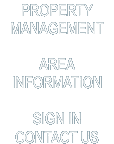
 |
 |
     
|
Finding the right mortgage. Finding the right mortgage is as important as finding the right house. Both of them can have a considerable impact on how comfortably you live. Before you start looking for a home or a mortgage, you'll need to figure out how much you can afford. The two main considerations in this equation are:
To figure out how much you can afford, take a careful look at your current assets (including income, savings, investments, IRAs, life insurance, pensions, corporate thrift plans, and equity in other real estate, etc.) and your liabilities (including outstanding loans, credit card balances, alimony, etc.). Now take a look at a unique factor only you can determine: your "loan personality." Since some mortgage options are less conservative than others, it's important to determine if you are a "risk-taker," or if you prefer more stability in your financial dealings. Next, think about how your income-or household income if there are two wage earners in the family-might change over the next several years. Use this information to decide on the best mortgage for you. Although there are no hard and fast rules, generally speaking, if you anticipate a fairly constant income level, you may prefer a fixed-rate mortgage. If, however, you expect annual income increases (i.e., greater than cost-of-living increases) you may want to maximize your buying power with an adjustable-rate mortgage. These and convertible ARM and balloon mortgages are discussed in more detail below. Comparing Mortgages When shopping for mortgage rates, be sure to ask the lender for the annual percentage rate (APR). The APR reflects the interest charged on the loan as well as prepaid finance charges. The most common charges are points and origination fees. A point is a one-time fee you pay the bank for the privilege of borrowing money. One point equals 1% of the loan. The origination fee is a one-time processing fee. Other costs may include private mortgage insurance premiums and the estimated interest prorated from closing date to month end. Regardless of the type of mortgage you decide on, you can opt for a rate lock when you apply for a home. Rate locks guarantee you will get the interest you are quoted by a lender for some set period of time-no matter how the interest rates fluctuate during that period. Rate locks are typically available for up to 120 days. Be sure to ask your lender if there is an extra charge for longer rate lock periods. And ask the lender what rate you will receive if rates drop during your lock-in period. Another feature of your mortgage that you should ask about up front is the prepayment provision. Are there penalties for an early payoff? If interest rates drop and you wish to refinance, this could come into play. You should consult your tax advisor or attorney for more information
on which mortgage products may be appropriate for you.
|